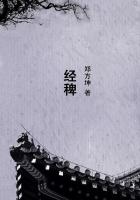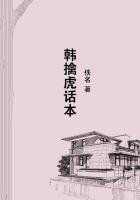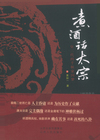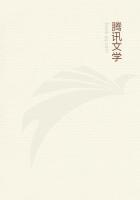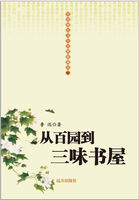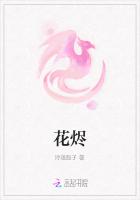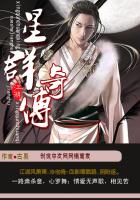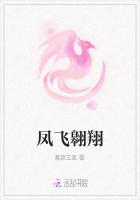If you express an opinion to him he will always begin by telling you that you are quite right; and if he ends by showing you that you are quite wrong, he will at least make you feel that your error is not only excusable, but in some way highly creditable to your intellectual acuteness or goodness of heart. In spite of his Liberalism he is a staunch Monarchist, and considers that the time has not yet come for the Emperor to grant a Constitution. He recognises that the present order of things has its defects, but thinks that, on the whole, it acts very well, and would act much better if certain high officials were removed, and more energetic men put in their places. Like all genuine St. Petersburg tchinovniks (officials), he has great faith in the miraculous power of Imperial ukazes and Ministerial circulars, and believes that national progress consists in multiplying these documents, and centralising the Administration, so as to give them more effect.
As a supplementary means of progress he highly approves of aesthetic culture, and he can speak with some eloquence of the humanising influence of the fine arts. For his own part he is well acquainted with French and English classics, and particularly admires Macaulay, whom he declares to have been not only a great writer, but also a great statesman. Among writers of fiction he gives the palm to George Eliot, and speaks of the novelists of his own country, and, indeed, of Russian literature as a whole, in the most disparaging terms.
A very different estimate of Russian literature is held by Alexander Ivan'itch N----, formerly arbiter in peasant affairs, and afterwards justice of the peace. Discussions on this subject often take place between the two. The admirer of Macaulay declares that Russia has, properly speaking, no literature whatever, and that the works which bear the names of Russian authors are nothing but a feeble echo of the literature of Western Europe. "Imitators," he is wont to say, "skilful imitators, we have produced in abundance.
But where is there a man of original genius? What is our famous poet Zhukofski? A translator. What is Pushkin? A clever pupil of the romantic school. What is Lermontoff? A feeble imitator of Byron. What is Gogol?"
At this point Alexander Ivan'itch invariable intervenes. He is ready to sacrifice all the pseudo-classic and romantic poetry, and, in fact, the whole of Russian literature anterior to about the year 1840, but he will not allow anything disrespectful to be said of Gogol, who about that time founded the Russian realistic school.
"Gogol," he holds, "was a great and original genius. Gogol not only created a new kind of literature; he at the same time transformed the reading public, and inaugurated a new era in the intellectual development of the nation. By his humorous, satirical sketches he swept away the metaphysical dreaming and foolish romantic affectation then in fashion, and taught men to see their country as it was, in all its hideous ugliness. With his help the young generation perceived the rottenness of the Administration, and the meanness, stupidity, dishonesty, and worthlessness of the landed proprietors, whom he made the special butt of his ridicule.
The recognition of defects produced a desire for reform. From laughing at the proprietors there was but one step to despising them, and when we learned to despise the proprietors we naturally came to sympathise with the serfs. Thus the Emancipation was prepared by the literature; and when the great question had to be solved, it was the literature that discovered a satisfactory solution."
This is a subject on which Alexander Ivan'itch feels very strongly, and on which he always speaks with warmth. He knows a good deal regarding the intellectual movement which began about 1840, and culminated in the great reforms of the sixties. As a University student he troubled himself very little with serious academic work, but he read with intense interest all the leading periodicals, and adopted the doctrine of Belinski that art should not be cultivated for its own sake, but should be made subservient to social progress. This belief was confirmed by a perusal of some of George Sand's earlier works, which were for him a kind of revelation.
Social questions engrossed his thoughts, and all other subjects seemed puny by comparison. When the Emancipation question was raised he saw an opportunity of applying some of his theories, and threw himself enthusiastically into the new movement as an ardent abolitionist. When the law was passed he helped to put it into execution by serving for three years as an Arbiter of the Peace.
Now he is an old man, but he has preserved some of his youthful enthusiasm, attends regularly the annual assemblies of the Zemstvo, and takes a lively interest in all public affairs.
As an ardent partisan of local self-government he habitually scoffs at the centralised bureaucracy, which he proclaims to be the great bane of his unhappy country. "These tchinovniks," he is wont to say in moments of excitement, "who live in St. Petersburg and govern the Empire, know about as much of Russia as they do of China. They live in a world of official documents, and are hopelessly ignorant of the real wants and interests of the people.
So long as all the required formalities are duly observed they are perfectly satisfied. The people may be allowed to die of starvation if only the fact do not appear in the official reports.
Powerless to do any good themselves, they are powerful enough to prevent others from working for the public good, and are extremely jealous of all private initiative. How have they acted, for instance, towards the Zemstvo? The Zemstvo is really a good institution, and might have done great things if it had been left alone, but as soon as it began to show a little independent energy the officials at once clipped its wings and then strangled it.

